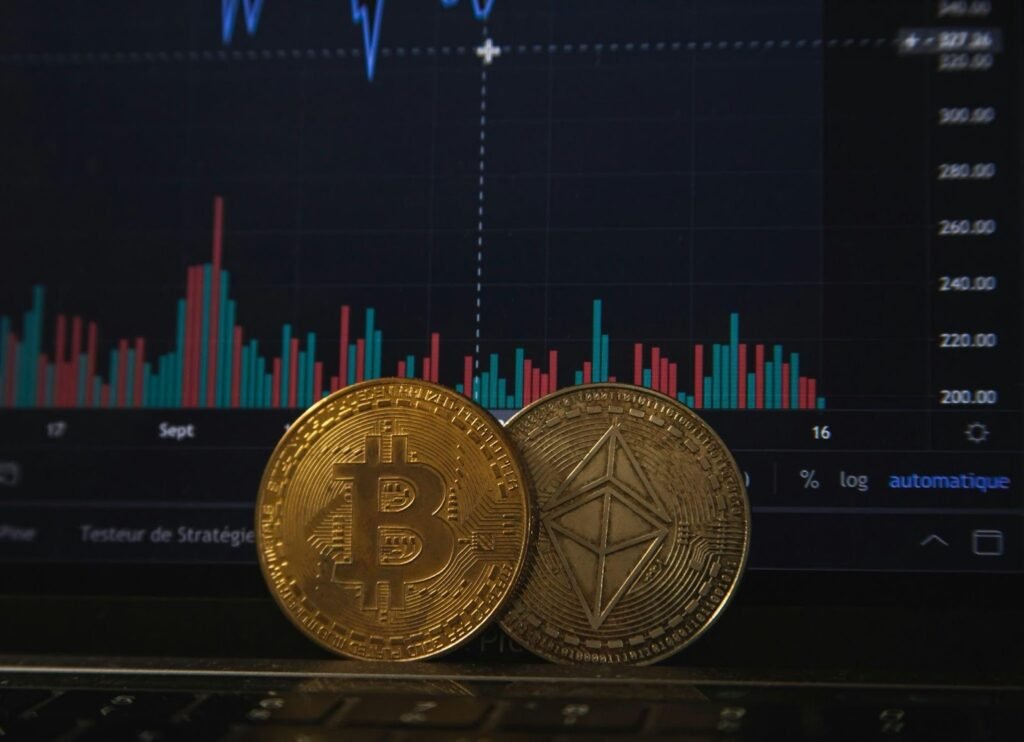Photo by Darlene Alderson on Pexels
The gaming industry has reached an exhilarating turning point with the incorporation of cryptocurrency and blockchain technology. As we navigate this digital revolution, it’s clear that the fusion of crypto and gaming is far more than a fleeting trend, it marks a transformative shift in how players interact with digital assets, rewards, and entertainment ecosystems.
Platforms built on blockchain are redefining transparency, ownership, and fairness in online gaming, allowing players to control their assets and participate in decentralized economies. For newcomers looking to explore this emerging landscape, offers such as the bc game no deposit bonus provide an accessible entry point to experience crypto gaming firsthand, without upfront investment.
In this article, we’ll delve into the intricacies of the crypto-gaming ecosystem, the growing influence of blockchain technology, the challenges ahead, and what the future may hold for players and developers alike. Join us as we explore this exciting evolution in the world of gaming.
Understanding The Crypto-Gaming Ecosystem
The intersection of cryptocurrency and gaming creates a rich ecosystem where virtual economies thrive. Players can not only engage in gameplay but also invest, trade, and even earn digital currencies through their gaming experiences. To understand this ecosystem better, we need to break it down into several key components, including the role of blockchain, the types of cryptocurrencies used, and the impact on player engagement.
Blockchain serves as the backbone for most crypto-gaming initiatives. It allows for the secure and transparent management of in-game assets, ensuring that transactions are verifiable and tamper-proof. This technology also facilitates smart contracts, which can automate various game functions, from player transactions to in-game rewards.
As crypto enthusiasts, we see a variety of cryptocurrencies being integrated into games. Popular options include Ethereum, Bitcoin, and specialized tokens unique to specific gaming platforms. These currencies enable players to purchase items, trade assets, and maintain ownership of their in-game possessions, which creates a genuine play-to-earn model.
Eventually, the crypto-gaming ecosystem fosters a sense of community among players. With cryptocurrencies enabling real financial stakes, gamers are more invested in their experiences and often share tips, strategies, and success stories that contribute to a vibrant community. We are witnessing the birth of a new realm of gaming where players are not just participants but also stakeholders, fostering deeper engagement and loyalty to the games they play.
The Rise Of Blockchain Technology In Gaming
Blockchain technology has swiftly made its mark on the gaming industry. This leap is attributed to several significant benefits that arise from its integration into gaming systems.
Benefits Of Integrating Cryptocurrency In Gaming
Integrating cryptocurrencies into gaming offers numerous advantages. Firstly, it promotes financial inclusivity, as players from diverse backgrounds can engage in games that offer economic rewards through small investments. Secondly, the use of cryptocurrency allows for instant transactions, eliminating the long wait times associated with traditional payment methods.
Also, blockchain technology ensures systems of accountability and transparency that reassure players. For example, blockchain records every transaction, making it nearly impossible for any entity to manipulate or cheat within the gaming ecosystem, so assuring fair play.
Creating Unique In-Game Economies
One of the most fascinating elements of blockchain in gaming is the ability to create unique, player-driven economies. Games like “Axie Infinity” and “Decentraland” have revolutionized the concept of virtual real estate and digital pets. In these ecosystems, players not only engage in battles or adventures but can also buy, sell, and trade digital assets in a way that mirrors real-world economic activities.
Empowering Players With Ownership
In traditional gaming, players often face the harsh reality of not owning the assets they purchase. Once a game fades into obscurity, so do the players’ hard-earned items. But, with blockchain, ownership of digital assets is secured. Players can retain their investments, transferring items from game to game or even selling them on open marketplaces. This empowers players in a way that traditional gaming never could, where every time a player levels up, they also create tangible value for themselves.
Challenges Facing The Crypto-Gaming Sector

Photo by Pierre Borthiry – Peiobty on Unsplash
Even though the exciting prospects of crypto and gaming, several notable challenges remain.
Regulatory Hurdles And Compliance Issues
As cryptocurrencies venture into the mainstream, regulatory scrutiny becomes inevitable. Governments worldwide are grappling with how to classify digital currencies and assets legally. This uncertainty can hinder developers who wish to integrate crypto into their games due to concerns about compliance. Navigating the legal landscape remains a challenging job for many new startups, and we need to stay informed as regulations evolve.
Scalability And Technical Limitations
Another significant challenge lies in scalability. Many blockchain networks are still in their infancy, and heavy traffic can lead to delays in transaction processing times. These technical limitations can negatively impact user experience when players are faced with sluggish transactions or high gas fees. For developers, addressing scalability issues is crucial to ensuring that the gaming experience remains seamless as the adoption of blockchain technology increases.
The Future Of Crypto And Gaming
Looking ahead, the future of crypto and gaming is undoubtedly bright, but it will be shaped by innovation and collaboration.
Innovative Game Concepts And Trends
We’re excited to witness new game concepts that seamlessly blend gaming experiences with blockchain mechanics. For instance, the emergence of NFT-based games allows for exclusive items, which can appreciate in value over time, creating an unprecedented sense of rarity and desirability. This trend opens up myriad creative opportunities for developers to engage players in unique ways, which we cannot wait to see unfold.
Potential Collaborations Between Industries
As we explore the future of crypto and gaming, collaborations between the gaming industry and tech giants like cryptocurrency exchanges or financial institutions may pave the way for even more innovative solutions. These partnerships could help stimulate technological advancements and promote wider adoption, eventually enhancing the gaming experience IT.




